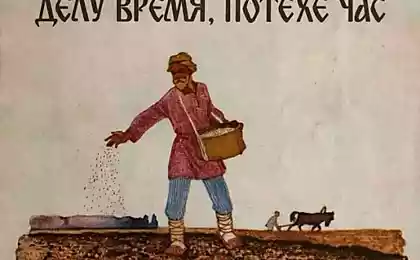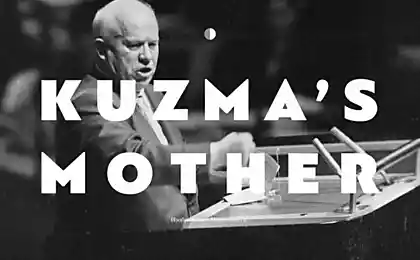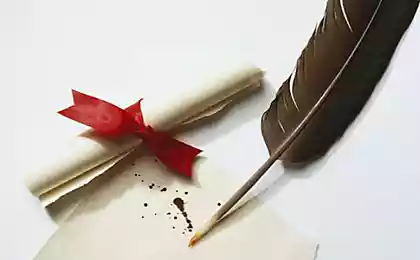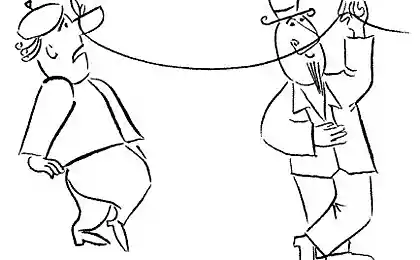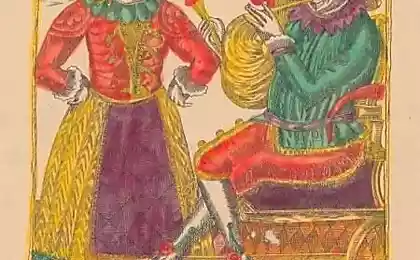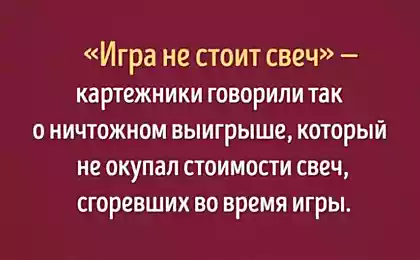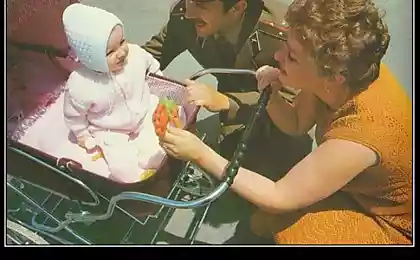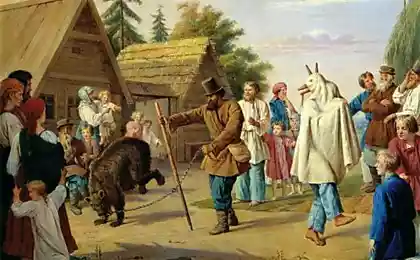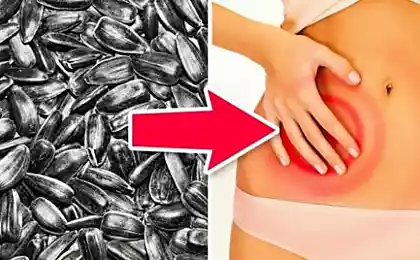769
Where did the expression ...
Taken in the network!
In everyday life, we often use different kinds of expressions, sayings, adjectives, etc. And all of us know the history of these expressions. Most of the numerous expressions suggest to learn about some of them.
1. "led by the nose»
Previously Roma entertain people at fairs, speaking with the bears. They made animal prodelyvat
different foci, thus deceiving the promise of handouts. Gypsies drove bear the ring, threaded through the nose. It
since that time "not to lead me by the nose" means "do not lie." But the expression "to know the whole story," ... linked with
ancient torture when the accused drove nails under the nails or needles. The purpose of this rather unpleasant action
was obtaining recognition.
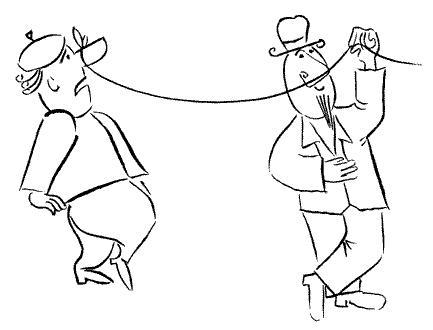
2. "Master cabbage»
About who is little that can, we say "the master of cabbage." The origin sayings is quite simple. Sour soup
(apparently, in the simplest variation) were nemudrёnoy food Water yes sauerkraut. Prepare the soup was not difficult.
And if someone called "the master of cabbage", which meant that anything worthwhile he is unfit. The expression "put a
pig ", that is to make someone something bad, most likely due to the fact that some people on religious
reasons, do not eat pork. And if a man quietly eating pork underlay, thereby making it a very serious dirty trick.
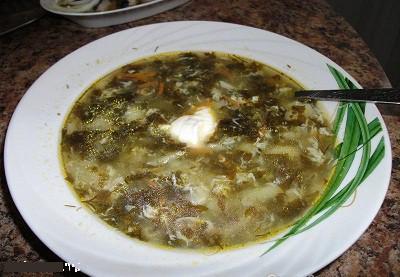
3. "twiddle»
Today, the expression "twiddle" means do nothing. Meanwhile, earlier bitё thumbs employed.
Although quite simple ... Dishes in distant times already mainly made of wood: cups and spoons,
"Bratina" and plates - everything was made of wood. But to cut something from the logs needed to chip chock -
thumbs. It was easy, trifling matter, which was instructed to apprentices. This activity is called "thumbs
beat. " Master jokingly called laborers "baklushechnikami." So, masters of jokes and there was an expression.
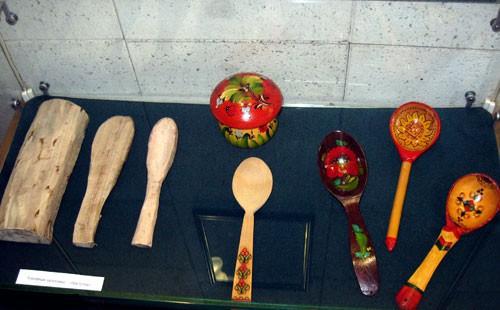
4. "I do not hit to the court»
When engaged in the study of proverbs and sayings, wonders of antiquity which they sometimes occur. "I do not fell to the court" - at this saying has an interesting mythological basis. According to her courtyard (in the yard) will live only
the animal that like houses. And if you do not like it, or run away, or get sick. What to do ... not to
court ...
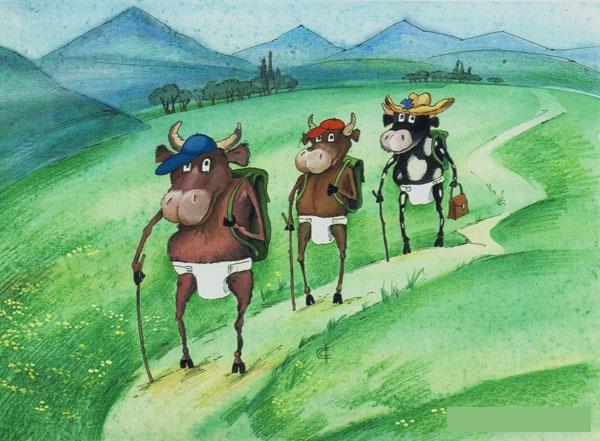
5. "Scapegoat»
"They found a scapegoat", "who this time will make a scapegoat?" - Such phrases can often
to hear at work. Under the "scapegoat" means a person who was hanged on all the flaws, with
he may have happened in a very indirect relationship troubles or even have them
uncomplicated. This expression has a story ... It was the ancient Jewish rite of absolution, which
He was a goat. The priest laid his hands on the head of the goat, and the like shifting on him the sins of
people. After this accident, that the sins of the whole nation had a rather weak relationship,
banished to the wilderness. So it goes. It is not known how many goats, went to the harsh journey for the sins of others,
but fortunately, Rite no longer exists. And the expression still lives.

6. "Kazan orphan»
As is known, the expression "Kazan orphan" refers to a person who pretends to be offended
or helpless to someone soften. Now the phrase is used more as a
natured joke. But why "Kazan"? This idiom came after the conquest
Kazan by Ivan the Terrible. Tatar princes (Mirza) were the subjects of the Russian tsar. However, they
We are trying to elicit from Ivan the Terrible various concessions and benefits, complaining about the bitter fate.
They also have become popular due to the sharp language of the first "Kazan orphan."
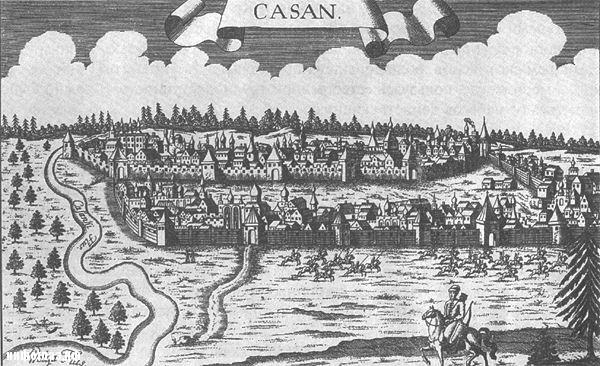
7. "Do not wash dirty linen in public»
The ancient and universally common proverb. Of course, it does not teach us impropriety.
She advises not to make family squabbles and quarrels in people. Dahl generally written beautifully about this saying: "family squabbles
House will understand, if not under a sheepskin, so under the same roof. " But there is this proverb and direct sense: the peasants dirty
never to sweep or put out. It was quite difficult to do: sweep rubbish on the street through the high
thresholds. But the main reason - the existence of a fairly serious beliefs: Copy of evil people can put the spell.
Sor usually darted into the oven or cooking corner. When they flooded furnace, burning rubbish. There was also another interesting
custom: wedding guests, testing the patience of the bride, were forced to sweep the house, while again and again littered and sentenced:
"Meti, methylation, but out of the house can not stand, and raking under the bench so on luggage in an oven to smoke issued."

8. "Neither the house nor home»
We speak about the state of extreme poverty. If you parse the content of this proverb,
it turns out that there is "no stake" that is short the pointed stick, "no court" - that is, at home. As for "yard»
everything is clear, and disputes on this score there. But what about the "Cola" is a pretty persuasive version of the end
nineteenth century. The fact is that, at least in some places, "stake" band called
arable land width of two fathoms. Therefore, do not have a Coke - therefore have no arable land; not to have the court
- It means to live with others. Well ... it is logical. It is difficult to overestimate, especially in the old days, the value of arable land for
peasant. In fact, along with the house, it was his main wealth.

9. "ochumet»
The word "ochumet" is often used in everyday life. As you know, it means a situation where people
It lost the ability to clearly perceive the surrounding reality, to think properly. Interestingly,
origin of the word is associated with major events in 1771, it was then raging in Moscow devastating
Plague. Eyewitnesses described the people of the following symptoms: "Reprimand unintelligible patients and zameshatelen language exactly
primorozhen or will bite, or a drunk. " The plague manifested itself in a fever, heat, headache and dizziness.
The memory of the above developments was reflected in the word "ochumet" which we now apply to less serious
Situations.
Moustache, graduated.

Source:
In everyday life, we often use different kinds of expressions, sayings, adjectives, etc. And all of us know the history of these expressions. Most of the numerous expressions suggest to learn about some of them.
1. "led by the nose»
Previously Roma entertain people at fairs, speaking with the bears. They made animal prodelyvat
different foci, thus deceiving the promise of handouts. Gypsies drove bear the ring, threaded through the nose. It
since that time "not to lead me by the nose" means "do not lie." But the expression "to know the whole story," ... linked with
ancient torture when the accused drove nails under the nails or needles. The purpose of this rather unpleasant action
was obtaining recognition.

2. "Master cabbage»
About who is little that can, we say "the master of cabbage." The origin sayings is quite simple. Sour soup
(apparently, in the simplest variation) were nemudrёnoy food Water yes sauerkraut. Prepare the soup was not difficult.
And if someone called "the master of cabbage", which meant that anything worthwhile he is unfit. The expression "put a
pig ", that is to make someone something bad, most likely due to the fact that some people on religious
reasons, do not eat pork. And if a man quietly eating pork underlay, thereby making it a very serious dirty trick.

3. "twiddle»
Today, the expression "twiddle" means do nothing. Meanwhile, earlier bitё thumbs employed.
Although quite simple ... Dishes in distant times already mainly made of wood: cups and spoons,
"Bratina" and plates - everything was made of wood. But to cut something from the logs needed to chip chock -
thumbs. It was easy, trifling matter, which was instructed to apprentices. This activity is called "thumbs
beat. " Master jokingly called laborers "baklushechnikami." So, masters of jokes and there was an expression.

4. "I do not hit to the court»
When engaged in the study of proverbs and sayings, wonders of antiquity which they sometimes occur. "I do not fell to the court" - at this saying has an interesting mythological basis. According to her courtyard (in the yard) will live only
the animal that like houses. And if you do not like it, or run away, or get sick. What to do ... not to
court ...

5. "Scapegoat»
"They found a scapegoat", "who this time will make a scapegoat?" - Such phrases can often
to hear at work. Under the "scapegoat" means a person who was hanged on all the flaws, with
he may have happened in a very indirect relationship troubles or even have them
uncomplicated. This expression has a story ... It was the ancient Jewish rite of absolution, which
He was a goat. The priest laid his hands on the head of the goat, and the like shifting on him the sins of
people. After this accident, that the sins of the whole nation had a rather weak relationship,
banished to the wilderness. So it goes. It is not known how many goats, went to the harsh journey for the sins of others,
but fortunately, Rite no longer exists. And the expression still lives.

6. "Kazan orphan»
As is known, the expression "Kazan orphan" refers to a person who pretends to be offended
or helpless to someone soften. Now the phrase is used more as a
natured joke. But why "Kazan"? This idiom came after the conquest
Kazan by Ivan the Terrible. Tatar princes (Mirza) were the subjects of the Russian tsar. However, they
We are trying to elicit from Ivan the Terrible various concessions and benefits, complaining about the bitter fate.
They also have become popular due to the sharp language of the first "Kazan orphan."

7. "Do not wash dirty linen in public»
The ancient and universally common proverb. Of course, it does not teach us impropriety.
She advises not to make family squabbles and quarrels in people. Dahl generally written beautifully about this saying: "family squabbles
House will understand, if not under a sheepskin, so under the same roof. " But there is this proverb and direct sense: the peasants dirty
never to sweep or put out. It was quite difficult to do: sweep rubbish on the street through the high
thresholds. But the main reason - the existence of a fairly serious beliefs: Copy of evil people can put the spell.
Sor usually darted into the oven or cooking corner. When they flooded furnace, burning rubbish. There was also another interesting
custom: wedding guests, testing the patience of the bride, were forced to sweep the house, while again and again littered and sentenced:
"Meti, methylation, but out of the house can not stand, and raking under the bench so on luggage in an oven to smoke issued."

8. "Neither the house nor home»
We speak about the state of extreme poverty. If you parse the content of this proverb,
it turns out that there is "no stake" that is short the pointed stick, "no court" - that is, at home. As for "yard»
everything is clear, and disputes on this score there. But what about the "Cola" is a pretty persuasive version of the end
nineteenth century. The fact is that, at least in some places, "stake" band called
arable land width of two fathoms. Therefore, do not have a Coke - therefore have no arable land; not to have the court
- It means to live with others. Well ... it is logical. It is difficult to overestimate, especially in the old days, the value of arable land for
peasant. In fact, along with the house, it was his main wealth.

9. "ochumet»
The word "ochumet" is often used in everyday life. As you know, it means a situation where people
It lost the ability to clearly perceive the surrounding reality, to think properly. Interestingly,
origin of the word is associated with major events in 1771, it was then raging in Moscow devastating
Plague. Eyewitnesses described the people of the following symptoms: "Reprimand unintelligible patients and zameshatelen language exactly
primorozhen or will bite, or a drunk. " The plague manifested itself in a fever, heat, headache and dizziness.
The memory of the above developments was reflected in the word "ochumet" which we now apply to less serious
Situations.
Moustache, graduated.

Source:
